Big Data: the Newest Tool in Fighting Alzheimer’s, Dementia
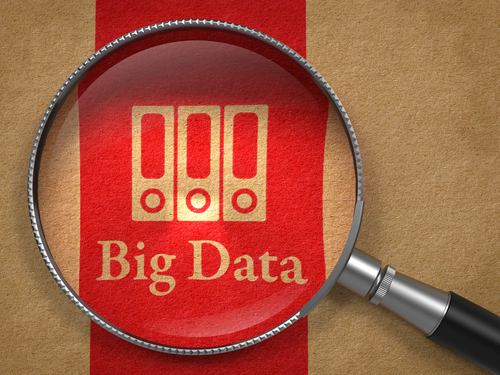
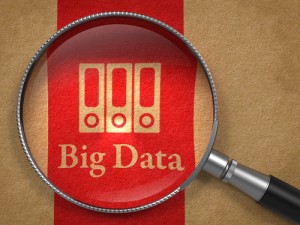 Experts from around the globe gathered in Toronto last week to discuss new approaches to the challenge increasing rates dementia present at an Organization for Economic Co-operation and Development (OECD) workshop organized in partnership with the Ontario Brain Institute (OBI) and the Institute of Health Policy, Management and Evaluation from the University of Toronto (IHPME).
Experts from around the globe gathered in Toronto last week to discuss new approaches to the challenge increasing rates dementia present at an Organization for Economic Co-operation and Development (OECD) workshop organized in partnership with the Ontario Brain Institute (OBI) and the Institute of Health Policy, Management and Evaluation from the University of Toronto (IHPME).
Thematically focused on exploring the role big data can play in improving dementia research and care, the international meeting brought together more than 50 leading researchers, medical doctors, policy makers, analytics experts, and patient advocates to advance international discussion on the opportunities and challenges associated with use of “big data” to better understand and treat dementia.
Big data — that is, tapping into huge volumes of information that can be generated by increasingly computerized and networked health care systems — has potential to accelerate evaluation of treatments and care models, and generate more thoroughgoing insights into system performance. The Toronto workshop participants were able to explore how this information can be applied to dementia, and to identify logical next steps in unlocking and advancing the potential of data-driven innovation.
Dementia has a large and growing impact on health status and enormous socio-economic consequence globally. By current estimates, these diseases directly affect more than 35 million people worldwide, and the annual costs of dementia, currently estimated at US$ 604 billion, are growing even faster than the disease’s prevalence.
The OECD has been working to address the challenge dementia presents for people affected, their families and friends, for health systems, and for society in general. The organization focuses particularly on how health care systems must adapt in order to address the dementia challenge; seeking ways to deploy information technologies and big data to improve prevention and treatment of the disease; and to harness the innovation model and supercomputers to mobilize research and technology that is needed to address dementia. Through its global reach and ability to bring together government and non-government perspectives, the OECD is in a unique position to address the challenge.
[adrotate group=”3″]
You can learn more about OECD work on dementia in the brochure: Addressing Dementia: the OECD Response.
http://www.oecd.org/sti/addressing-dementia-the-oecd-response.pdf
It has been suggested that better understanding of prevention, treatment, and care of dementia will require linking data on environmental factors, genetics, brain imaging and other types of information that come from laboratory and clinical research — just the sort of things big data are well-suited to.
At the Toronto meeting, experts from diverse perspectives were able to discuss the role big data could play in efforts to delay the onset of — or even someday cure — dementia. Uniquely, those outcomes will require a focus on opportunities surrounding the linking of research (deep) data and health (broad) data.
During the meeting, attendees heard about opportunities and challenges associated with making use of big data to better understand the disease, to help develop new ways to prevent and treat it, and to optimize health care systems around the world to provide sustainable, high-quality care to those with dementia. Opportunities and challenges were discussed through the various perspectives of experts present in aid of providing guidance on moving forward.
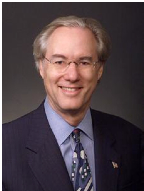 The meeting adjourned with a public talk featuring Mr. George Vradenburg, convener of The Global CEO Initiative on Alzheimer’s Disease and Founder and Chairman of USAgainstAlzheimer’s Disease. Mr . Vradenberg spoke about how science, industry, and government need to align goals and work more closely, fund more effectively, and transform the global Alzheimer’s crisis of into an opportunity for healthy aging and innovation. The Globe and Mail’s health reporter Andre Picard moderated the talk.
The meeting adjourned with a public talk featuring Mr. George Vradenburg, convener of The Global CEO Initiative on Alzheimer’s Disease and Founder and Chairman of USAgainstAlzheimer’s Disease. Mr . Vradenberg spoke about how science, industry, and government need to align goals and work more closely, fund more effectively, and transform the global Alzheimer’s crisis of into an opportunity for healthy aging and innovation. The Globe and Mail’s health reporter Andre Picard moderated the talk.
 “Dementia takes a huge toll on families, health systems, and economies. Deep and broad data for innovation in care and research offer a unique opportunity to advance prevention, research and care for dementia; this workshop will help move forward our efforts to address this devastating disease,” comments Dr. Dirk Pilat, Organisation for Economic Co-operation and Development, Deputy Director of the Directorate for Science, Technology and Industry — in which he supports the STI Director in pursuing the Directorate’s programme of work and contributing to the achievement of the strategic goals of the Organisation as defined by the OECD Secretary-General. Dr. Pilat has also worked on the OECD Innovation Strategy and OECD Green Growth Strategy, on how to draw greater benefits from information technology for economic growth, how to strengthen growth performance in OECD economies (the OECD Growth Project), how to strengthen the performance of the services sector, as well as work on climate change, labour markets, product market regulation, productivity and entrepreneurship. He was Head of the Science and Technology Policy Division from 2006 to January 2009, with responsibility for the OECDs Committee for Scientific and Technological Policy, and Head of the Structural Policy Division, with responsibility for the OECDs Committee on Industry, Innovation and Entrepreneurship, from February 2009 to December 2012. Before joining the OECD, Mr. Pilat was a researcher at the University of Groningen, in the Netherlands, where he also earned his PhD in Economics.
“Dementia takes a huge toll on families, health systems, and economies. Deep and broad data for innovation in care and research offer a unique opportunity to advance prevention, research and care for dementia; this workshop will help move forward our efforts to address this devastating disease,” comments Dr. Dirk Pilat, Organisation for Economic Co-operation and Development, Deputy Director of the Directorate for Science, Technology and Industry — in which he supports the STI Director in pursuing the Directorate’s programme of work and contributing to the achievement of the strategic goals of the Organisation as defined by the OECD Secretary-General. Dr. Pilat has also worked on the OECD Innovation Strategy and OECD Green Growth Strategy, on how to draw greater benefits from information technology for economic growth, how to strengthen growth performance in OECD economies (the OECD Growth Project), how to strengthen the performance of the services sector, as well as work on climate change, labour markets, product market regulation, productivity and entrepreneurship. He was Head of the Science and Technology Policy Division from 2006 to January 2009, with responsibility for the OECDs Committee for Scientific and Technological Policy, and Head of the Structural Policy Division, with responsibility for the OECDs Committee on Industry, Innovation and Entrepreneurship, from February 2009 to December 2012. Before joining the OECD, Mr. Pilat was a researcher at the University of Groningen, in the Netherlands, where he also earned his PhD in Economics.
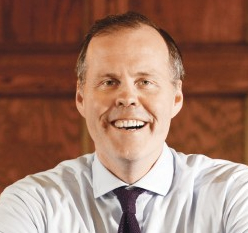 “The data generated by research studies on dementia can be combined with the data already contained in health records to improve care for people living with dementia,” observes Dr. Adalsteinn Brown, Director, Institute of Health Policy, Management and Evaluation, Dalla Lana School of Public Health, University of Toronto in the release. “When the deep insights derived from these data are linked to policy and practice questions we can ensure that people with dementia get the best care and that our health system is best organized to support them and their caregivers. We are pleased to be partner with OBI and OECD on this workshop. U of T is home not only to world-leading neuroscientists, it also has a critical mass of health policy leaders whose knowledge of Ontario’s health care system is crucial to linking health services data in a meaningful way.” The IHPME’s mission is to integrate the collective of healthcare professionals to empower intellectual exchange and transform how people think and what they do to improve healthcare.
“The data generated by research studies on dementia can be combined with the data already contained in health records to improve care for people living with dementia,” observes Dr. Adalsteinn Brown, Director, Institute of Health Policy, Management and Evaluation, Dalla Lana School of Public Health, University of Toronto in the release. “When the deep insights derived from these data are linked to policy and practice questions we can ensure that people with dementia get the best care and that our health system is best organized to support them and their caregivers. We are pleased to be partner with OBI and OECD on this workshop. U of T is home not only to world-leading neuroscientists, it also has a critical mass of health policy leaders whose knowledge of Ontario’s health care system is crucial to linking health services data in a meaningful way.” The IHPME’s mission is to integrate the collective of healthcare professionals to empower intellectual exchange and transform how people think and what they do to improve healthcare.
“Our programs continue to grow as more and more students seek an education at IHPME and are wonderfully successful,” comments Dr. Brown. This year our students and faculty have been honored at conferences and events across the country and around the world. Our position as the largest and most productive group of scholars working in health services, health policy, clinical epidemiology, and related fields in Canada remains strong.
You can see a video interview with Dr. Brown here:
 “We are very proud that this is occurring in Ontario, and we wish to take advantage of the opportunity to not only focus our efforts in using research and health data to advance care, but to position Ontario within a global framework among leaders like the OECD,” says Dr. Donald T. Stuss, Ontario Brain Institute, President and Scientific Director and a professor in Psychology, Neurology and Rehabilitation Science at the University of Toronto who came to the OBI from Baycrest Research, one of the world’s premier academic health sciences centers focused on aging and the study of human brain function, fully affiliated with the University of Toronto. A distinguished scientist and international authority in neuroscience, Dr. Stuss’s research work includes study of the frontal lobe of the brain, which underlies memory, cognition and consciousness. He investigates the interaction of emotion and cognition, and how brain function is affected by the aging process.
“We are very proud that this is occurring in Ontario, and we wish to take advantage of the opportunity to not only focus our efforts in using research and health data to advance care, but to position Ontario within a global framework among leaders like the OECD,” says Dr. Donald T. Stuss, Ontario Brain Institute, President and Scientific Director and a professor in Psychology, Neurology and Rehabilitation Science at the University of Toronto who came to the OBI from Baycrest Research, one of the world’s premier academic health sciences centers focused on aging and the study of human brain function, fully affiliated with the University of Toronto. A distinguished scientist and international authority in neuroscience, Dr. Stuss’s research work includes study of the frontal lobe of the brain, which underlies memory, cognition and consciousness. He investigates the interaction of emotion and cognition, and how brain function is affected by the aging process.
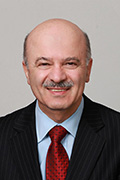 “Ontario supports big data initiatives and through the important work of the Organisation for Economic Co-operation and Development and the Ontario Brain InstituteI know great strides will continue to be made towards the prevention and better treatments for people living with dementia and other diseases. Our government has a plan that invests in people and we want to help patients and their families who suffer from devastating effects of dementia. I eagerly look forward to the findings and outcomes from the International Dementia Workshop,” says Ontario Minister of Research and Innovation and Minister of Training Colleges and Universities Reza Moridi.
“Ontario supports big data initiatives and through the important work of the Organisation for Economic Co-operation and Development and the Ontario Brain InstituteI know great strides will continue to be made towards the prevention and better treatments for people living with dementia and other diseases. Our government has a plan that invests in people and we want to help patients and their families who suffer from devastating effects of dementia. I eagerly look forward to the findings and outcomes from the International Dementia Workshop,” says Ontario Minister of Research and Innovation and Minister of Training Colleges and Universities Reza Moridi.
For more information about the OECD’s focus on dementia, visit:
http://www.oecd.org/health/dementia.htm
For more information on IHPME:
http://ihpme.utoronto.ca/
Launched in November 2010, the Ontario Brain Institute is a provincially-funded, not-for-profit research center seeking to become an internationally recognized centre of excellence in brain research, translation and innovation, maximizing the impact of neuroscience, and establishing Ontario as a world leader in brain research, commercialization and care. OBI creates convergent partnerships between researchers, clinicians, industry, patients, and their advocates to foster discovery and deliver innovative products and services that improve the lives of those living with brain disorders. Research outcomes will be translated into clinical applications and commercialization opportunities related to the prevention, early diagnosis, treatment and management of brain diseases and disorders.The OBI serves as a nexus for collaborative efforts, with a program focused on bringing together Ontario’s leading scientists and clinicians drawn from Ontario’s universities, colleges, and hospitals.
For more information, visit:
http://www.braininstitute.ca/homepage
Sources:
Ontario Brain Institute
Organisation for Economic Co-operation and Development (OECD)
Institute of Health Policy, Management and Evaluation
Image Credits
Organisation for Economic Co-operation and Development (OECD)
Institute of Health Policy, Management and Evaluation
Baycrest Research






